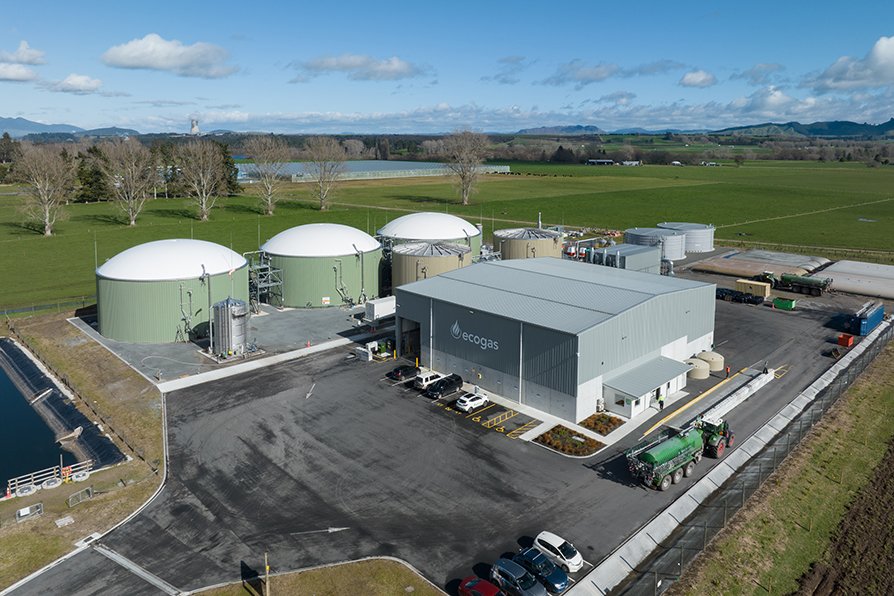Ecogas wins Low Carbon Future award
Still almost a month shy of its first birthday, Ecogas’s Organics Processing Facility in Reporoa has been recognized with a win in this year’s Energy Excellence Awards and is progressing its plans to feed biomethane produced from organic waste into the reticulated gas network.
As winner of the low carbon future award, Ecogas director Andrew Fisher says with a footprint of less than two hectares, the Reporoa facility has the capacity to divert 40 percent of the organic waste that’s currently going into 3,500 hectares of landfill operations in the Auckland area alone.
When at full capacity and feeding biomethane into the gas pipelines, it expects to supply enough renewable gas to fuel around 7,200 homes.
The Reporoa facility is very much on track with its own development schedule, Fisher says.
“We’re very happy with where we are now.”
Biomethane’s not the only product from the facility. Carbon dioxide will be stripped from the biogas and made available to the food, beverage and horticultural industries. It also produces a liquid fertiliser that’s in high demand and is replacing imported fertilisers.
The plant’s feedstock comes from Auckland Council’s curb-side collection, and organic waste from commercial and large industrial sites in the primary production and horticultural production.
The Reporoa facility is fully automated in terms of processing the waste it receives. It can automatically de-pack cans, milk bottles, yoghurt bottles and sachets, with no need for manual de-packing.
Fisher says while it’s a very sophisticated operation, “it’s not the only one in the world operating at this level”. There are around 380 similarly sophisticated plants internationally and New Zealand was very late in entering the industry.
Denmark, for instance, is well on the way to producing 40 percent of its grid supplied gas from organic waste, he says.
“And arguably, we’ve got more waste than they have.”
Denmark has regulated and mandated the recovery of organic waste for many years. In France, it is no longer permissible for supermarkets to dispose of food waste in landfills.
Meanwhile, it’s “embarrassing” that New Zealand – not helped by extremely low tipping fees compared with other OECD countries – is still dumping organic and other recyclable waste into landfills, Fisher says.
“We’re a country that doesn’t align with our messaging.”
Ecogas is planning on this changing in coming years.
While the Reporoa facility was designed to allow for significant expansion in the future, Ecogas also has other future sites earmarked in the Manawatu and Christchurch.
What’s needed for the New Zealand organic waste recovery market to achieve its the full potential is some market certainty from regulatory settings and incentivisation to encourage investment in infrastructure, Fisher says

